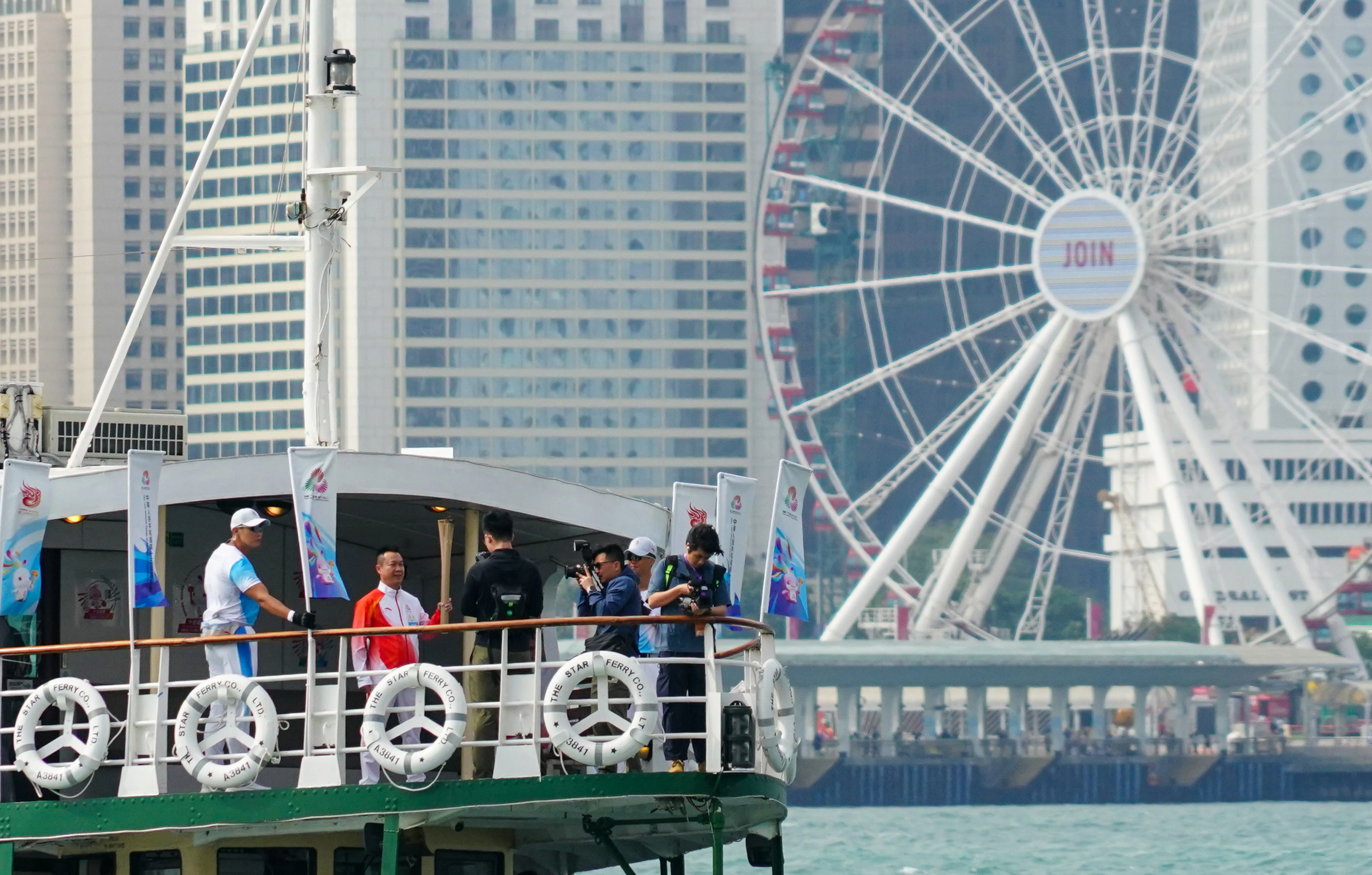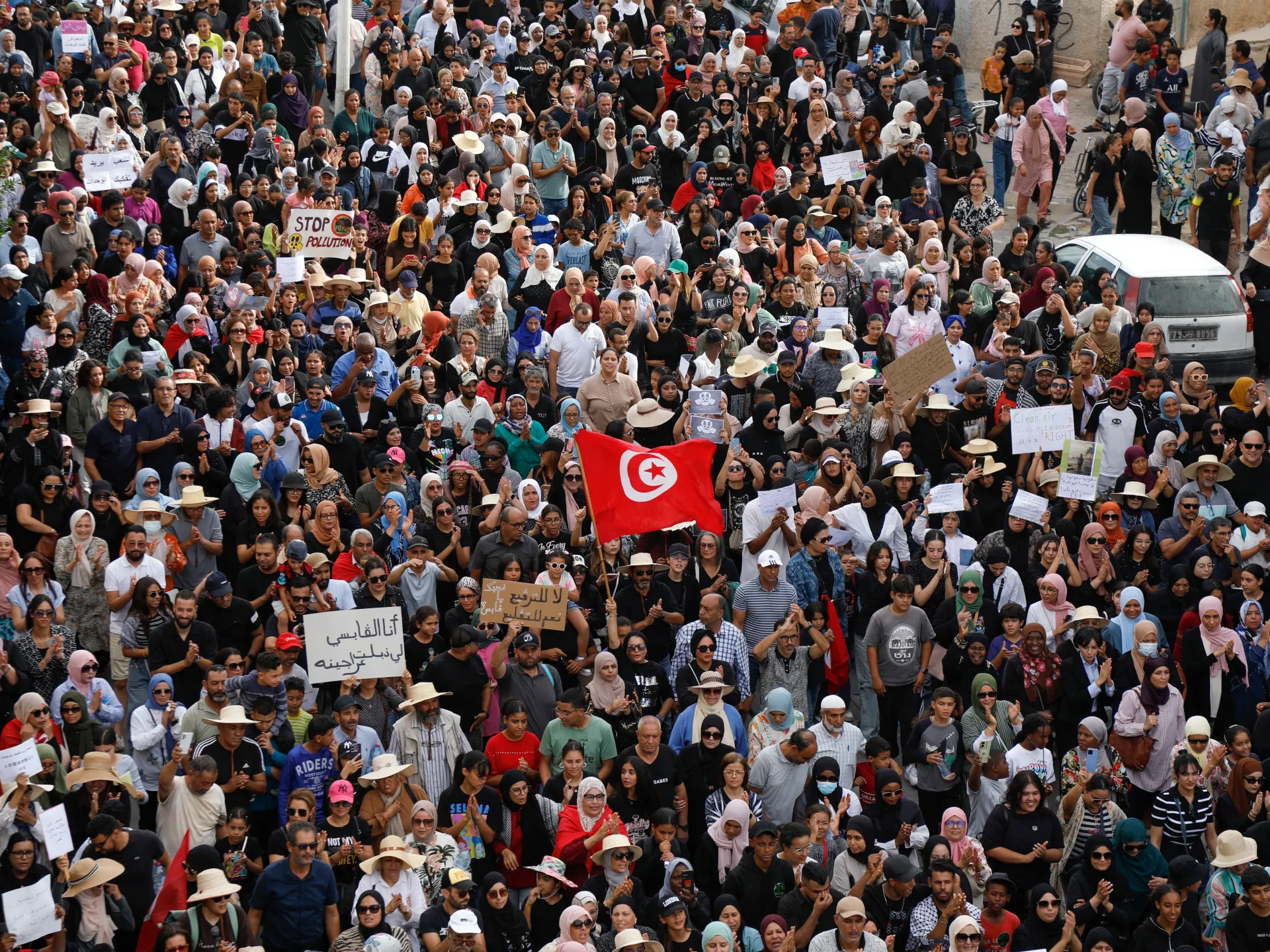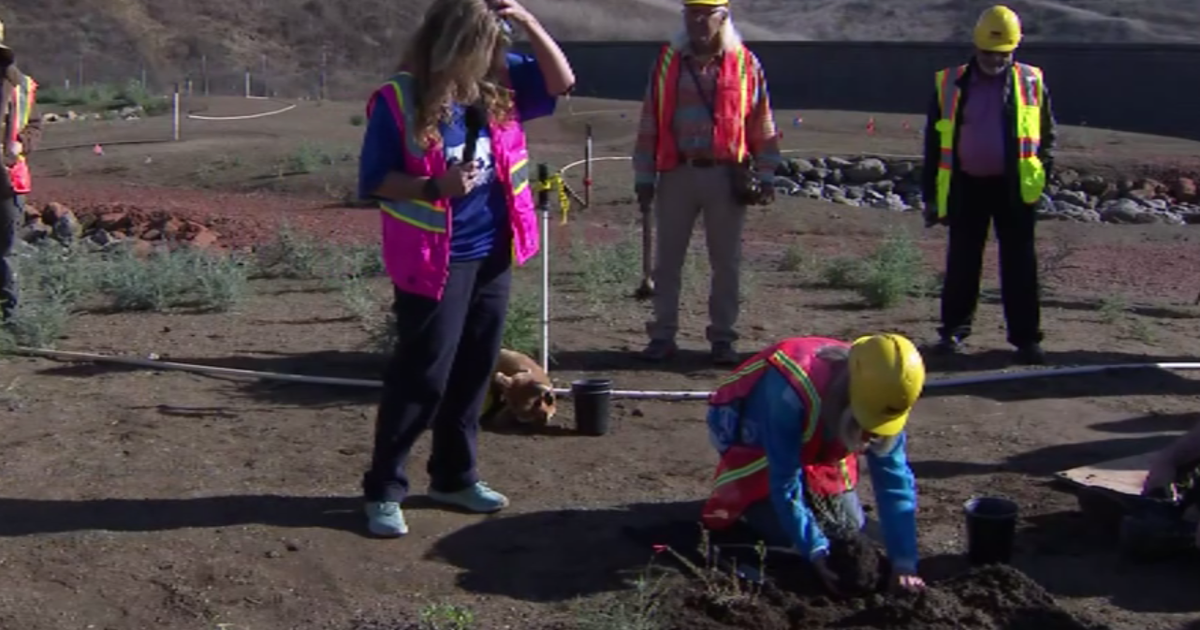Copyright scmp

Hong Kong joined Macau and two Guangdong cities on Sunday in marking the run-up to the National Games with torch relays featuring top athletes, business leaders and community members, as a minister revealed that about a third of local event tickets had been sold. The relays started in the morning in Hong Kong, Macau, Shenzhen and Guangzhou, with acting chief executive Eric Chan Kwok-ki describing the local section as a “city parade” involving 50 torch-bearers passing landmarks and modern sports facilities. “It is not only a feat but also fully shows the unique edges of the Guangdong-Hong Kong-Macau Greater Bay Area,” Chan said at the opening ceremony for the city’s relay event. “The torch’s journey will showcase to the world Hong Kong’s extraordinary charm as an international metropolis and a city of mega-events.” Secretary for Culture, Sports and Tourism Rosanna Law Shuk-pui, meanwhile, said authorities were well prepared for the start of the Games on November 9. She also expressed optimism regarding local ticket sales despite around 70 per cent of those for locally hosted competitive events remaining unsold. Co-hosted by Hong Kong, Guangzhou and Macau, the 15th National Games will run until November 21. The Games are considered China’s highest-level multi-sport event. The 10km (6.2 miles) relay event in Hong Kong began at Tamar Park outside the government’s headquarters in Admiralty, with table tennis player Wong Chun-ting getting the run started. Nearly half of the 50-strong relay team were from the sports sector, including five-time Olympic swimmer Stephanie Au Hoi-shun and volleyball player Tse Kin-wang, who is representing Hong Kong at the Games. Business heavyweights also took part including Henderson Land Development chairman Martin Lee Ka-shing and Sun Hung Kai Properties executive director Adam Kwok Kai-fai. Hong Kong Jockey Club chairman Martin Liao Cheung-kong and CEO Winfried Engelbrecht-Bresges also joined the relay. The club has committed more than HK$500 million (US$64.4 million) to support the event. Mainland Chinese enterprises and athletes were among those who played a role, including Feng Xingya, chairman and general manager of Guangzhou Automobile Group Co, who served as the eighth torch-bearer. Other torch-bearers were epee fencer Sun Yiwen, gymnast Ding Xinyi and tennis player Sun Tiantian. Thirty minutes into the relay, the torch was taken aboard a ferry and crossed Victoria Harbour in about 15 minutes. One of the two segments on the ferry was completed by Li Ching, a former Olympic Games silver medallist and the head coach of the city’s table tennis team. His seven-minute leg was one of the longest. “The torch was really hot … Honestly, it was quite comfortable riding on the ferry, feeling the sea breeze,” he said. The torch reached Tsim Sha Tsui, travelling along Salisbury Road in the care of representatives from public transport operators and the medical industry, among others, before it was taken onto an open-top bus ride heading to Kai Tak. Escorted by police, the bus passed through Hung Hom and To Kwa Wan as Citybus managing director William Chung Chak-man carried the torch and waved to residents. The final leg travelled around Kai Tak Sports Park, which will host the Games’ competitions for handball, rugby sevens and fencing. The journey then wrapped up as local fencer Kaylin Hsieh Sin-yan lit the cauldron at the complex’s central square. Hsieh, the world’s No 4 fencer, said she cherished the opportunity to be the relay’s final torch-bearer and felt a “different kind of anxiety” when comparing her run with competing. “Personally, fire is a huge symbol representing strength and hope. It’s just like us chasing our dreams as athletes,” she said. “I’d only seen others do this before and thought it was meaningful and powerful. I felt the same after doing it myself.” Eric Chan, who was acting chief executive as city leader John Lee Ka-chiu was attending an Asia-Pacific Economic Cooperation meeting in South Korea, brought the event to a close with a short speech. Table tennis player Wong said he enjoyed his maiden relay run very much and felt the public’s support as he carried the torch. “I am going to frame the torch and put it up at home, maybe let my daughter touch it when she grows older,” he said. Crowds cheered along the way as torch-bearers came into view. Among them was Albert Leung, a 63-year-old retiree waving both the national and Hong Kong flags. “It might be the only chance in my life to see such a scene, and I feel proud,” said Leung, who had bought a ticket for the Games’ rugby sevens event. Shenzhen’s relay event deployed smart robots, while the section in Guangzhou featured autonomous vehicles. Representatives from the four cities returned the flames after their relays for a ceremony at the Guangdong Olympic Sports Centre in Guangzhou. Sports minister Law told a television programme on Sunday that preparations for the Games were “99 per cent ready”, adding that impromptu on-site preparations were also important for an event of this size. She also discussed ticket sales, saying about 30 per cent of those for Hong Kong events had been sold. “The public seems to favour the finals of most events,” she said. But Law said that strong preliminary matches, such as Hong Kong’s beach volleyball fixture against the strongest team, Shandong, were likely to boost interest. “For these large-scale sporting events, it is often only slowly – or even just before it begins – that people feel the desire to go in and soak up the atmosphere.” She also addressed public health concerns after Hong Kong’s first locally acquired chikungunya virus was confirmed last Sunday. “Our venues will additionally implement mosquito eradication and prevention … and we will monitor the mosquito index,” she said. Law reminded the public and athletes to take precautions against bites.



